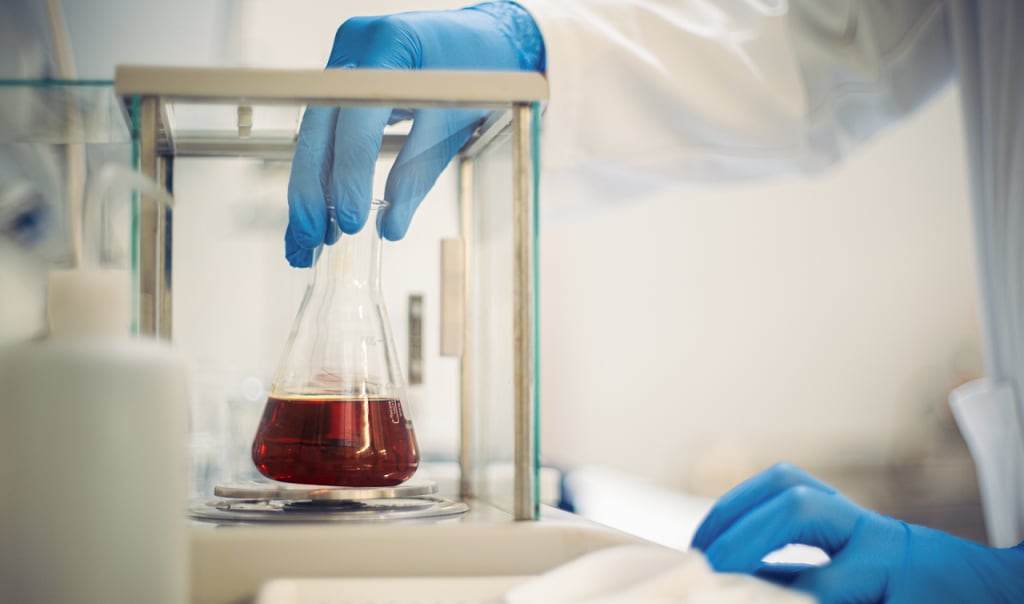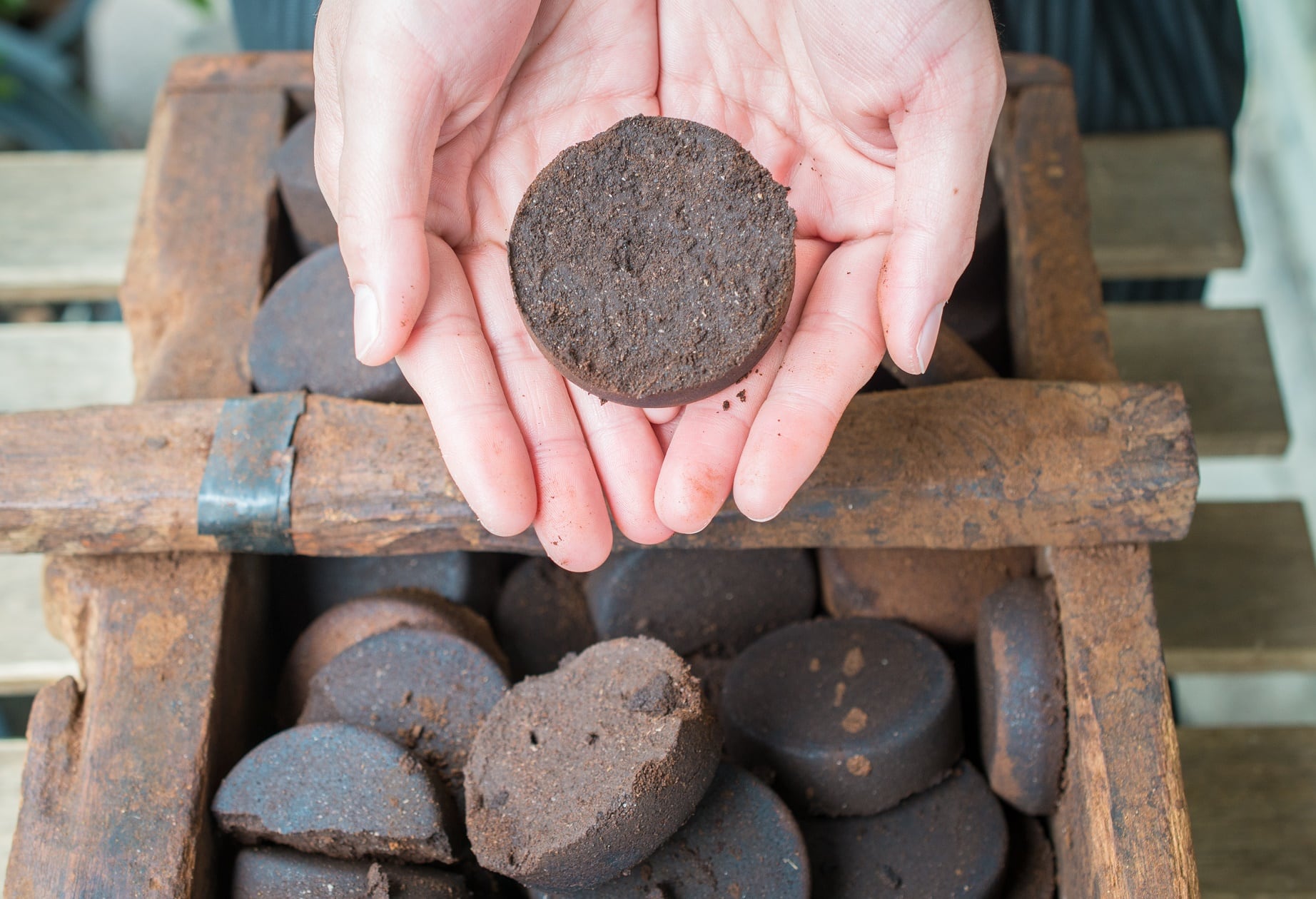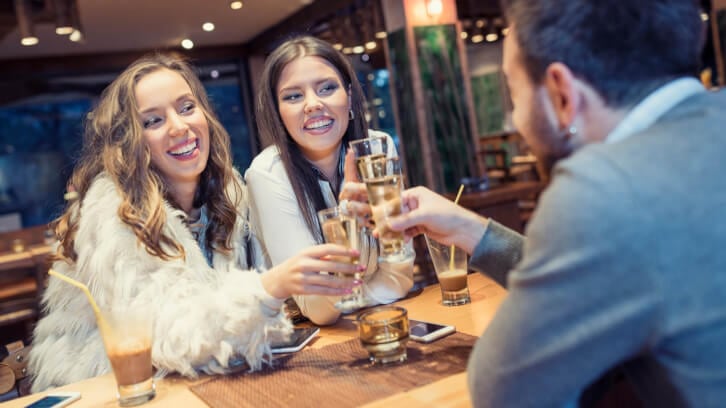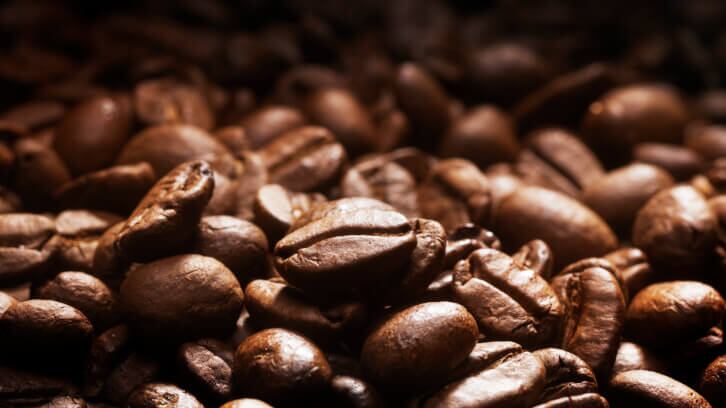Nivea and The Body Shop are already using oil and fibers from Kaffe Bueno’s upcycled coffee grounds in their products: illustrating the vast potential to use what usually ends up as waste as a valuable ingredient.
A brewed cup of coffee uses around 1% of the nutritional value in coffee’s biomass: with much of the nutritional value literally rotting away with the finished coffee grounds.
Finding value in coffee grounds
The three Colombian entrepreneurs behind Danish company Kaffe Bueno have set out to ‘challenge coffee as perhaps the world's most underutilized raw material while also reducing the massive CO2 emissions from brewing the 3 billion cups of coffee consumed globally every day’.
As well as upcycing and creating value from a waste product, Kaffe Bueno estimates that, for every ton of oil extracted from coffee grounds, it saves the atmosphere 56 tons of CO2.
Alejandro Franco, Juan Medina and Camilo Fernandez were studying international business in London when they realized there was a lot of coffee waste and started to question where that all ends up (in landfill, where it decomposes and generates methane).
They then starting thinking about their childhood in Colombia, where coffee grounds are considered for their value.
“Our grandmothers would use coffee grounds on a wound as a kid. And although it sounds pretty weird, it really helped reduce inflammation! They would also use it to dye their hair. So we grew up seeing coffee used for many things instead of being thrown away,” explained Franco.
“We asked ourselves the question ‘what is inside coffee that helps reduce inflammation on a wound?’ and then that opened a whole world.”
Innovation grant
Caffeine makes up less than 1% of coffee: the rest is protein, sugars, lipids, antioxidants, essential fatty acids. And when the trio started to search, they found more than 100 clinical studies that have looked at coffee to treat or prevent a wide variety of conditions.
Added to that is a widespread movement in the cosmetics industry to move towards natural ingredients – yet these have traditionally been more expensive, inconsistent in terms of quality, or unable to perform to the same level as synthetics and petrochemicals.
Kaffe Bueno has been working since 2016 to refine and upcycle coffee grounds to utilize the proteins, antioxidants, fats, and other nutrients they contain.
‘Already Used’ by Nivea; The Body Shop’s hair and skincare products; and bread from 7-Eleven use oil and fibers from coffee grounds. But now Kaffe Bueno is taking this to the next level.
With €2.5m ($2.6m) backing from the European Innovation Council, Kaffe Bueno is now opening the doors to the world's first coffee biorefinery. Located in Rødovre, it can initially upcycle 500 tons of coffee grounds per year: but the company has allowed for capacity expansion to 1,500 tons.
Copenhagen was an attractive site: located in a country with high coffee consumption, a thriving biotech scene, and a strong recycling infrastructure and culture.
“The biorefinery is where we breakdown coffee – all of its compounds,” explained Alejandro Franco. “Then with those compounds, we make ingredients for personal care and other industries, too. This is the transition of our pilot lab to a commercial scale up. There we have different technologies going on, which we keep a trade secret. But it's all in green chemistry, biotechnology and nanotechnology.

“We’ve had two ingredients on the market for the last couple of years, but this year we launched three more, which are basically from after the oil has been extracted and we’re left with the coffee grounds. We sell these in the food industry and in the cosmetics industry as an exfoliant.
“Then we ‘double upcycle it’ by turning the by-product of the oil production into a product too. We also use it to continue making new ingredients.
“So basically, we start with the coffee grounds, then we extract the oil, then from the oil we can produce a range of bio-based surfactants, which are a natural alternative to SLS.
“But then after the oil is extracted, we're left with the grounds here up top. That's what we call ‘a fibre’. But then it's also the raw material for farther downstream processes and that yields more products or more ingredients.
“We use a biopolymer fraction to produce a myriad of active ingredients for BB creams and scalp and hair care. But then after that there is a by-product of that extraction or of that process and we continue to use that instead of throwing it away. That is what is going to happen in this factory at a large scale.”
Creating a circular economy
Kaffe Bueno has been on the scene since 2016. Franco has seen a huge uptick in interest in upcycling since then.
“I think the circular economy movement caught on around 2018. We started in 2016, in Denmark and although Scandinavia is known for sustainability, even people here were very like, ‘what are you talking about, upcycling. What is that?’ That was very difficult.
“And we had to fight scepticism of old-timers in the industry. In the first years, nobody wanted to talk to us. In 2017, I was going around with a coffee oil at [cosmetics trade show] InCosmetics and no one was interested. Then fast forward four years and in 2021 InCosmetics then was all about upcycling.”
Once people started becoming interested, the company then had to adapt around existing infrastructure to move things forward. Collecting and preserving coffee grounds was another challenge – ‘we also have to collaborate with logistics partners in ways that they have not imagined before’.
The company currently has five products on the market – including Kaffoil used by Nivea and The Body Shop – but Franco sees much greater potential.
“We are expanding our portfolio substantially and right now we have five products in the market, but there at least eight more coming soon.
“And we're expanding the portfolio in animal health, crop and soil health, as well as human nutrition and beverage.”
The company has recently signed distribution agreements with Nordmann Group, Renechem, EcoChem, Maha Chemicals, Amita, URAI and HanaCare.
And it is treating the Copenhagen biorefinery as a pilot plant: its ambitions are to up capacity and create new locations in Europe and the US.




